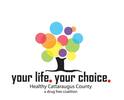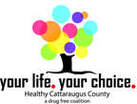According to a report issued by Substance Abuse and Mental Health Services Administration, on any given summer day, an average of over 11,000 teenagers drink alcohol for the first time, with the months of June and July having the highest start rates during the calendar year.
This can lead to numerous long- and short-term consequences. Initiating substance use during childhood or adolescence is linked to substantial long-term health risks. Early (aged 12 to 14) to late (aged 15 to 17) adolescence is generally regarded as a critical risk period for the initiation of alcohol use, with multiple studies showing associations between age at first alcohol use and the occurrence of alcohol abuse or dependence. The overwhelming majority of substance abuse treatment admissions aged 18 to 30 with known age of initiation information (74.0 percent) began substance use at the age of 17 or younger; amazingly 10.2 percent initiated use at the age of 11 or younger.
While many youth, unfortunately, tend to pay little attention to long-term consequences, the potential short-term consequences are more immediate and can be just as serious. According to teen drinking and driving statistics published by the Centers for Disease Control:
- Youth in the 16-20 age group are 17 times more likely to die in a car crash when they have a blood alcohol concentration of .08 of 1% than when they have not been drinking.
- Teen drivers are three times more likely than more experienced drivers to be in a deadly crash when alcohol is involved.
- One in five teen drivers involved in fatal crashes had some alcohol in their system. Most of these drivers (81%) had BACs higher than the legal limit for adults.
Even without a crash resulting in serious injury or fatality, the potential negative consequences for alcohol-impaired teen drivers (and their parents) can be serious. According to STOP DWI New York, the cost of a Driving While Intoxicated offense – including attorney fees, court costs, fines, mandatory ignition interlock fees, vehicle towing and storage costs, mandatory alcohol abuse assessment and treatment and/or drinking driver program, and DMV fees and penalties (not to mention increased auto insurance rates) can easily reach over $10,000. This can very seriously dampen any fun summer vacation plans. Parents can have their insurance rates raised, or policy cancelled altogether, due to the DWI offense of a child living in their household. Also, youth face lower thresholds, and additional penalties, for drinking and driving. Any youth under the age of 21 found to be driving with a BAC of just .02 - .07 of 1% (lower than the legal limit for adults), faces a misdemeanor charge punishable by up to six months to a year in jail, a fine of between $500 and $1,000, and an automatic license or permit suspension of six months.
So what steps should parents take to minimize the risk of their teen children consuming alcohol during the summer? Here are some suggestions, from Next Generation Village, teen alcohol and drug abuse center in Sebring, Florida:
- Take an interest in their day-to-day lives. It sounds simple, but asking kids what they did each summer day can give you some idea of whether they are having good, clean fun, hanging out with the wrong crowd, or doing absolutely nothing all day.
- Check yourself. Adults like to relax in the summer, too. If your habits pertaining to alcohol are less than exemplary, you may not be setting a good precedent, and your kids will pick up on that. Plus, be honest with your teens about any alcohol-related mistakes you have made in the past.
- Do not serve alcohol to your kids at home. Instead of demystifying booze for them and training them to drink properly, studies show that such practices have the opposite effect on teens’ drinking behavior. Absolutely do not host a party for your teen where alcohol is present.
- Monitor their nightlife. Summer curfews are perfectly acceptable, so do not hesitate to enforce them. If your teen is going to a party, ask whether there will be alcohol there (and check with the hosts if necessary). Also, make your teen stay home some nights during which you can plan family activities like games, a movie, or dinner at a restaurant.
- Keep them busy. You know that old saying about idle hands? Combat boredom by assigning tasks or chores to your teen during the summer. If you want, you can pay them for some work either with money or extended privileges.
- Keep track of money. If you give them money periodically, keep an eye on where it is going. If your teen spends it quickly, it may be going toward alcohol or drugs instead of food and incidentals. Definitely monitor any credit or debit card spending by your teenager.
- Watch for clues. If your teen’s room smells like alcohol, he or she is probably drinking. If your teenager suddenly gets “sick” the morning after going out with friends or to a party, chances are good that alcohol over-consumption is the cause.
Enjoy a safe and happy summer!
Michael Sharbaugh, Director
Cattaraugus County Probation


 RSS Feed
RSS Feed